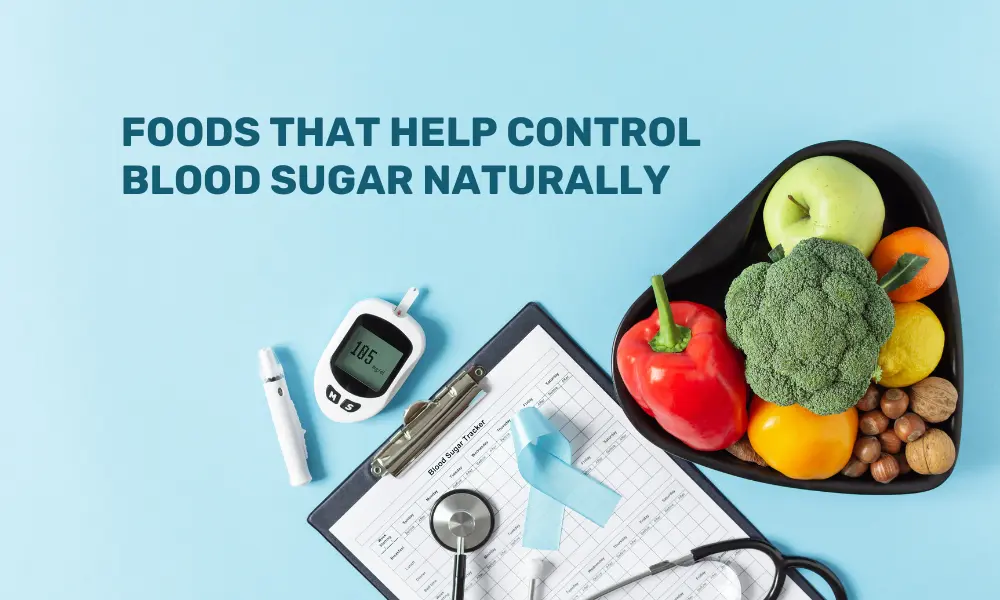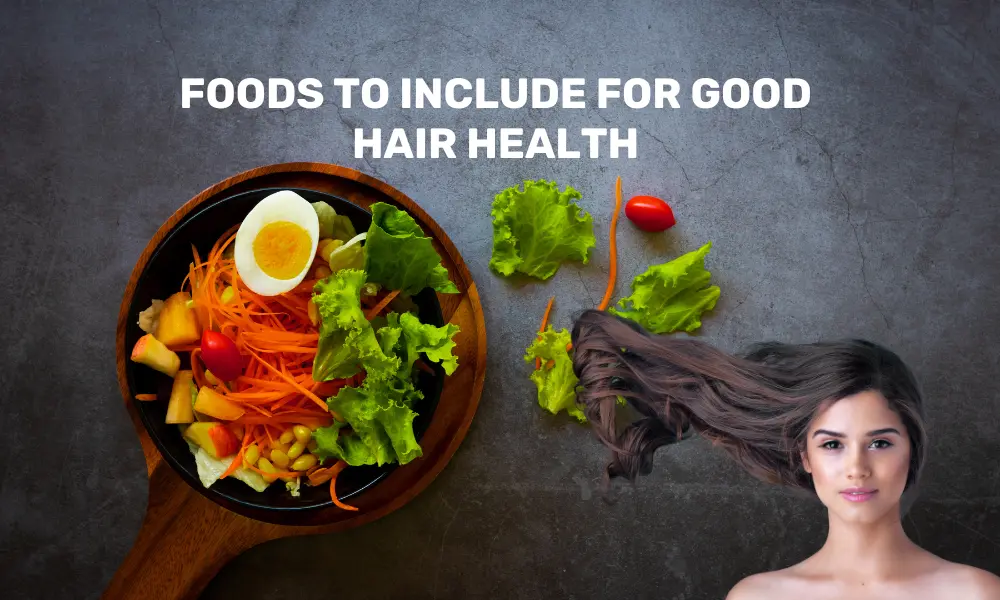In modern life, Type 2 Diabetes is one of the most prevalent health issues among all ages. We may likely know someone who has it, or we ourselves must be living with prediabetes ourselves. Type 2 diabetes is preventable, and one of the strongest weapons we have in our arsenal is food.
Our in-house expert, Dt. Aparna Pandey, MSC-Nutrition and Dietetics, shares how some foods can decrease the risk of Type 2 Diabetes and keep blood sugar levels stable.
How Food Affects Diabetes Risk?
Type 2 diabetes primarily occurs when the body becomes resistant to insulin; that is, your cells no longer respond to insulin, the hormone responsible for sending glucose from your blood into your cells. As time goes by, this causes high blood sugar and complications.
But here’s a science-based reality: there are foods that can enhance insulin sensitivity, decrease inflammation, promote healthy weight, and level out blood sugar. Let us examine six potent, common foods that can do just that.
1. Whole Grains – Jowar, Bajra, Ragi: These millets are rich in fiber and complex carbohydrates and are slowly digested without increasing blood sugar levels. They are naturally gluten-free and can be great for digestive health. Rich in magnesium, a key ingredient of insulin function and glucose regulation. Take bajra or jowar flour rotis or ragi porridge with nuts for breakfast.
2. Leafy vegetables – Methi, Palak, Bathua: Greens are nutrient-dense and low-calorie, with high levels of magnesium, folate, and vitamin C, which are responsible for regulating blood sugar. “They are also rich in chlorophyll, which counteracts oxidative stress and inflammation,” says Aparna. Morning intake supports liver detoxification and ensures metabolic health. Mix it into dals, saag, parathas, or simple stir-fries, but cook lightly to retain nutrients.
3. Legumes – Chana, Moong, Rajma, Masoor: Legumes are rich in plant protein, soluble fiber, and resistant starch that break down slowly to release glucose into the bloodstream. They also make you feel fuller longer and contribute to weight control, which is essential for preventing diabetes. An excellent source of zinc and B vitamins that regulate insulin.
Use boiled chana for salads or use moong/mixed dals to prepare dal-palak.
4. Turmeric (Haldi): Turmeric has curcumin, which enhances insulin sensitivity and lowers inflammation in fat cells. “It preserves pancreatic function, which will allow your body to produce insulin more effectively,” says Aparna. Acts as a natural antioxidant, protecting cells from damage that comes with elevated sugar levels. Use in soups and sabzis, and even drink turmeric water or golden milk at night.
5. Sweet Potato (Shakarkandi): Sweet potatoes are fiber and beta-carotene-rich, thus making them gut-strengthening and immune-strengthening. Unlike regular potatoes, they have a lower glycemic index and don’nt spike the blood sugar. They contain potassium and vitamin A, which are also good for the heart another diabetes problem. Boil or roast and have chaat with lemon and jeera as a nutritious evening snack.
7. Garlic (Lahsun): Garlic has also been reported to lower blood glucose levels during fasting in numerous studies. “High in allicin, an insulin-sensitizing agent that also supports cardiovascular health,” says Aparna. Serves as a natural blood thinning agent, minimizing the chance of diabetic complications. Use in tadkas or raw in chutneys for optimal effect.
Bonus Lifestyle Tips
-
Walk for 15–30 minutes after major meals to lower sugar spikes naturally.
-
Stay hydrated – even mild dehydration can impact sugar levels.
-
Choose fresh, home-cooked meals over packaged “diabetic” foods.
The Bottomline
Expensive foods are not necessary to prevent diabetes. When balanced and carefully prepared, our traditional Indian foods provide the body with all it needs to maintain insulin sensitivity and metabolic health.
Remember that consistency and minor daily adjustments are more important than perfection. Your greatest tool for preventing lifestyle diseases like Type 2 Diabetes may be your kitchen. For more such nutrition-related tips – CLICK HERE!
Disclaimer: This article is meant for informational purposes only and must not be considered a substitute for professional advice.





